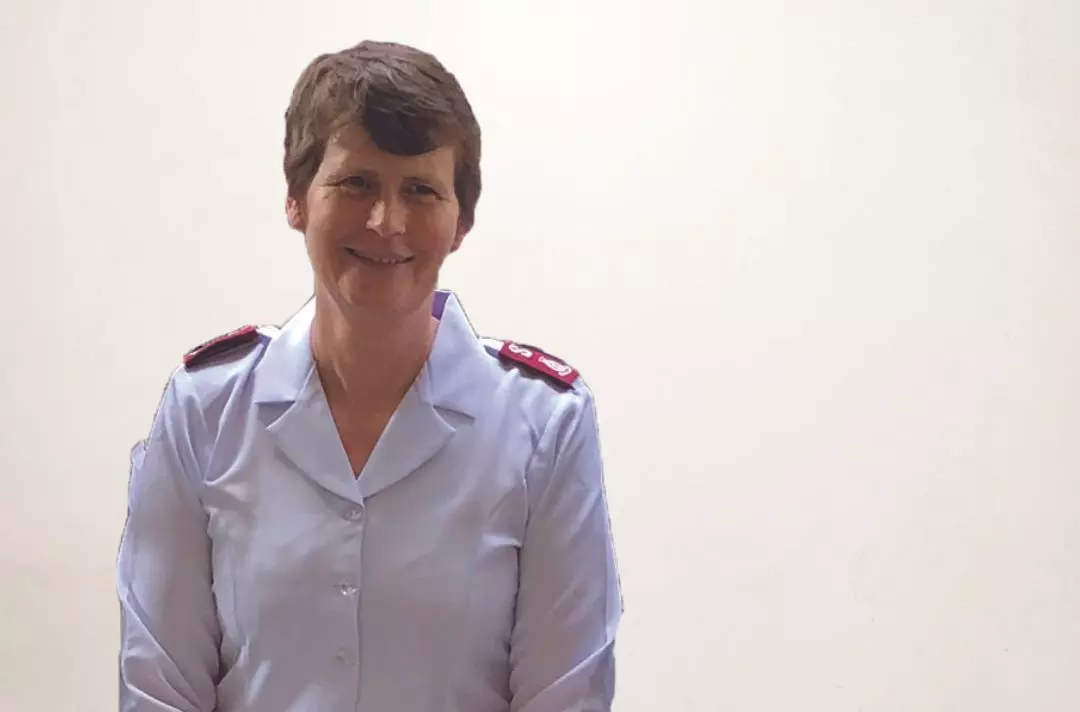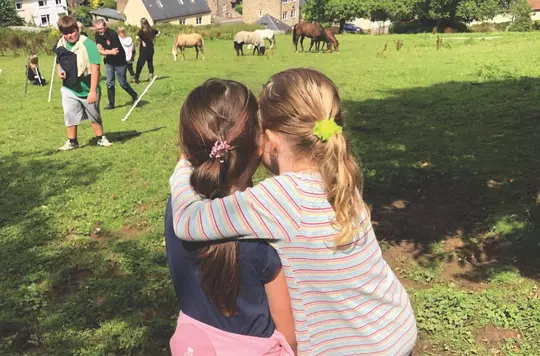25 January 2023
'This is God's world: The urgency is now'
Simon Hope

As the Army steps up its response to climate change, Major Heather Poxon outlines her role as territorial environmental officer.
There's a new kid on the block! In response to the climate crisis, the Army has introduced a new role: Territorial Environmental Officer. Tasked with driving forward the Care for Creation agenda, this role has fallen into the capable hands of Major Heather Poxon, who took it up last year.
Environmentalism is an important part of Heather’s life, which makes her a natural choice for the role: ‘It’s always been a passion. I was born and brought up in Kenya and my father taught us to be careful with the environment – because “it’s not just about you”.’
For the first few months in the role, Heather has focused on actively listening. A network of Environmental Champions has been especially helpful, meeting quarterly and over WhatsApp to share stories and ask questions.
‘I’m talking to people right from Devon to Shetland,’ Heather enthuses. ‘They are incredibly creative! Key experts have been hired to drive the sustainability agenda forward. And the territorial commander and the North West divisional commander recently signed a joint letter to stop the coalmine in Cumbria.’
The role also helps the Army in this territory reach its environmental goals. For example, it would be great to be able to reduce the Army’s carbon footprint by at least 50 per cent by 2030, as well as commit to the point where it can reach net zero.
But Heather is careful to temper this hope with a warning: ‘The urgency is now.’
‘I’m a little bit wary of goals,’ she elaborates, ‘because sometimes we leave it until the last minute. It’s too late for the millions of people who have lost their lives, land and livelihoods. We need to restrain – corporately and individually – our appetites, our buying, our travel, our flying, and we need to do it now.’
One way to live this out practically, she suggests, is registering with Eco Church, Eco-Congregation Scotland or Eco-Congregation Ireland. These programmes help churches to come to terms with the effect they have on God’s creation. Through obtainable targets and surveys, they offer a pathway to a more sustainable way of life.
Currently, 23 corps are signed up to these initiatives. Seven have been recognised with a Bronze award, but none has yet achieved Silver. Heather wants to see 30 per cent of the territory signed up by the end of 2023, and 30 per cent more in 2024. That’s almost 200 corps each year!
‘This is our common home,’ reminds Heather. ‘It’s common with the generations coming up and with those worldwide. The science is right, but our agenda is based on theology. This is God’s world. He loves it – so should we.’
‘“Tread softly” is the unofficial slogan of this part of the Army’s mission,’ adds Heather. ‘It is a gentle reminder of responsibility and opportunity.’
The territory’s Care for Creation mission priority is a call to action in response to the devastation that humanity is wreaking on God’s good creation. Working together, we can be the difference.
5 ways to save the Earth without paying the earth
1. Consider how you travel
Avoid driving or flying whenever possible. Could you walk, cycle or take public transport?
2. Consider how you eat
Red meat is particularly bad for the environment. Could you go vegetarian or vegan for a couple of days each week?
3. Consider how you heat
Keep an eye on your thermostat. Keep doors closed to conserve heat and try not to heat rooms you don’t use. Could you wear extra layers to keep warm?
4. Consider how you clean
How can you use less hot water? Could you take a short shower instead of a bath?
5. Consider how you light
LED light bulbs are slightly more expensive initially, but they use less energy – and money – in the long run. Could you make the switch?
- To connect with Heather, email environment@salvationarmy.org.uk
Written by

Simon Hope
Editorial Assistant
Discover more

Major Heather Poxon talks to Simon Hope about the Army’s goal to halve its carbon footprint by 2030.

The Salvation Army's International Positional Statement on Caring for the Environment.

University student Yelena Grase Jurkenas shares seven eco-friendly habits and reflects on God’s invitation to care for creation.

Simon Hope finds out how mission and environmentalism is intertwining in the Forest of Dean.